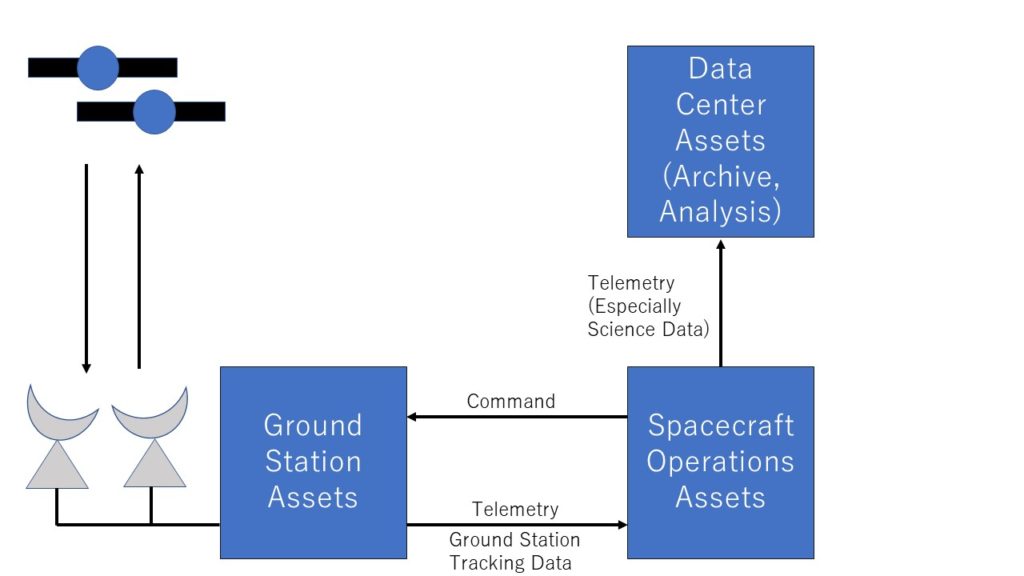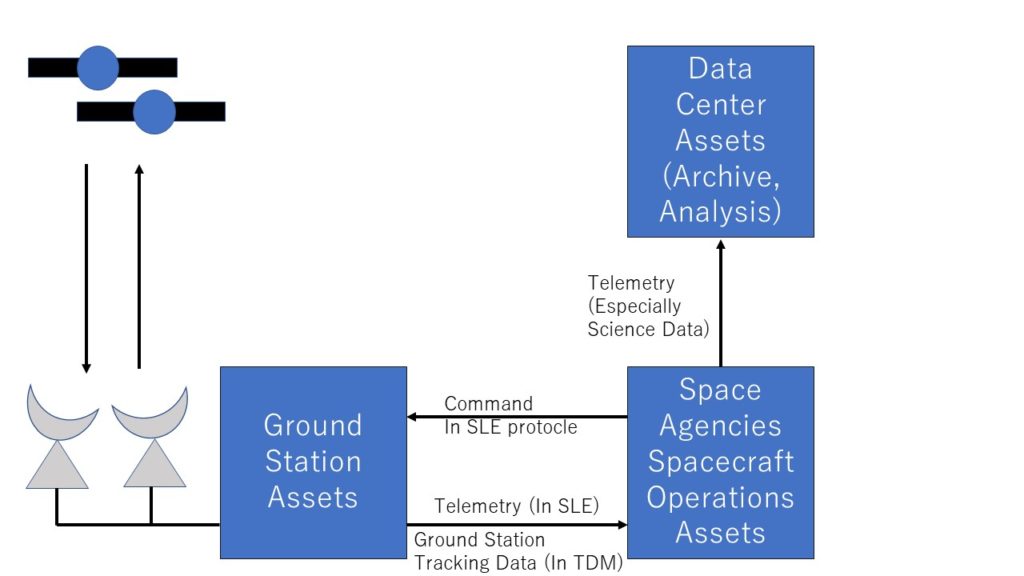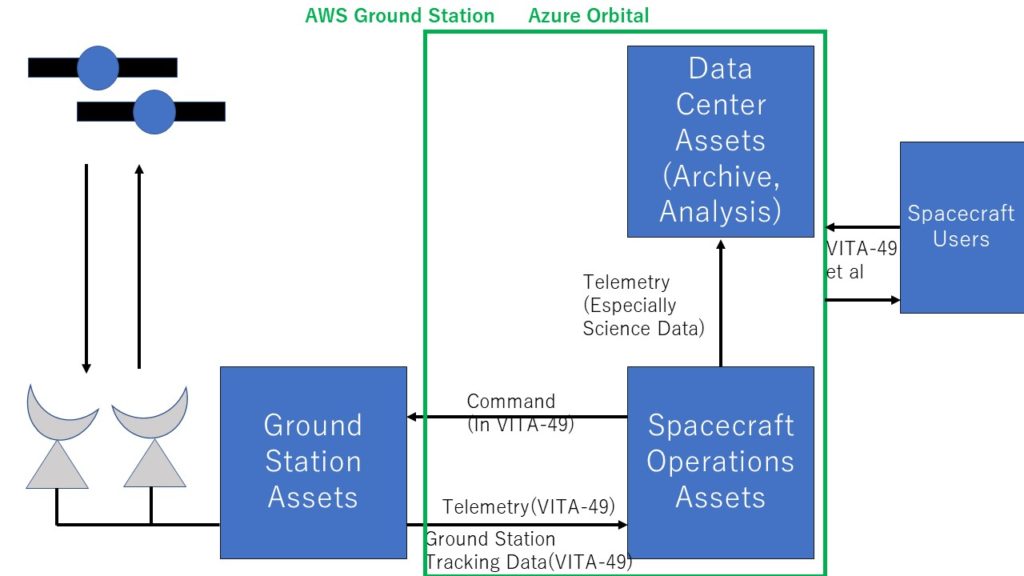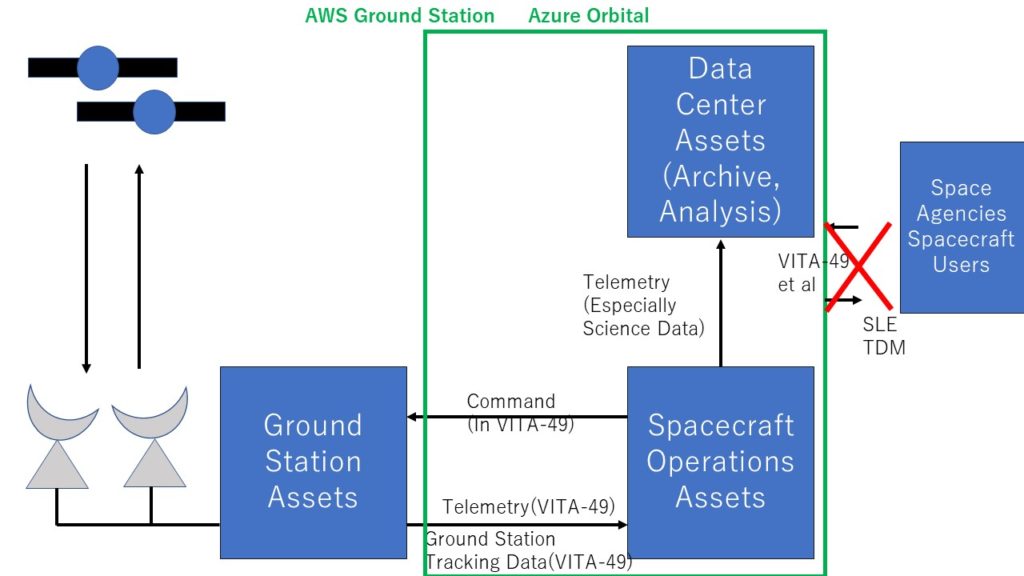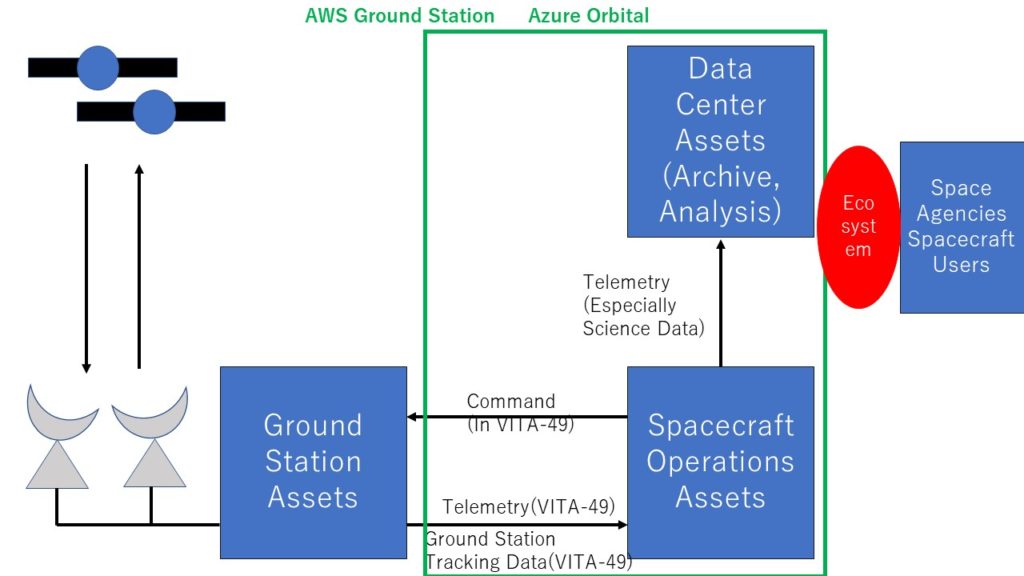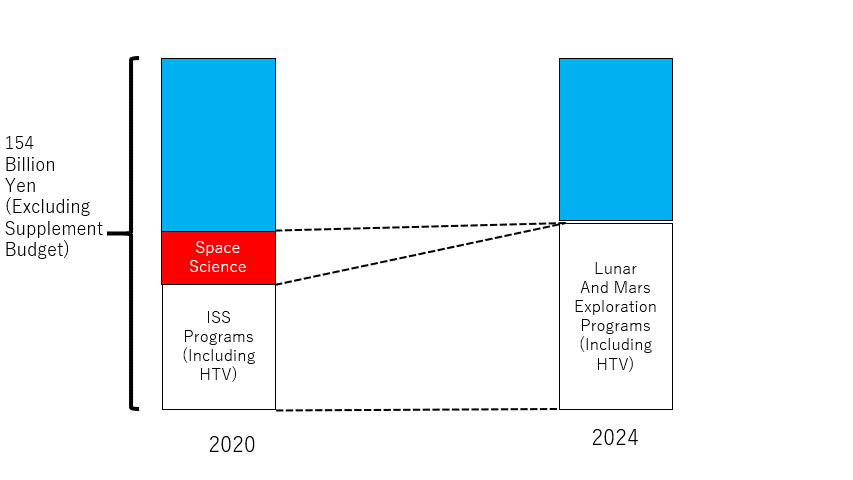Microsoft released Azure Orbital September 2020, 2 years after Amazon started AWS ground station in 2018. Azure Orbital provide spacecraft users with all-in-one services between ground station and data archiving. Moreover, Azure orbital users can use the largest Ground Station Provider, KSAT, which whole space agencies use.
Then, can space agencies use these cloud service apart from security consideration?
Currently, NO. Space agencies use international standard, particularly CCSDS, to have interoperability among space agencies, while AWS and Azure provide commercial standard, such as ANSI standard. Therefore, developing ecosystem is necessary to have interface between Space Agencies assets and these commercial services.
